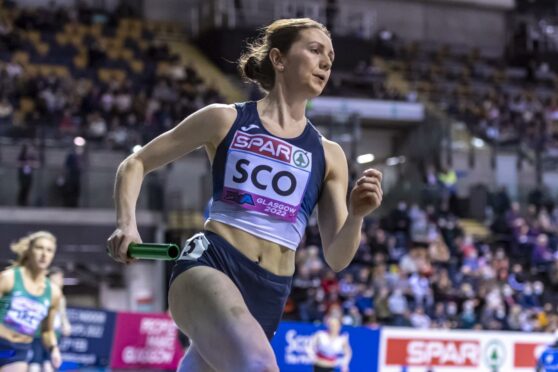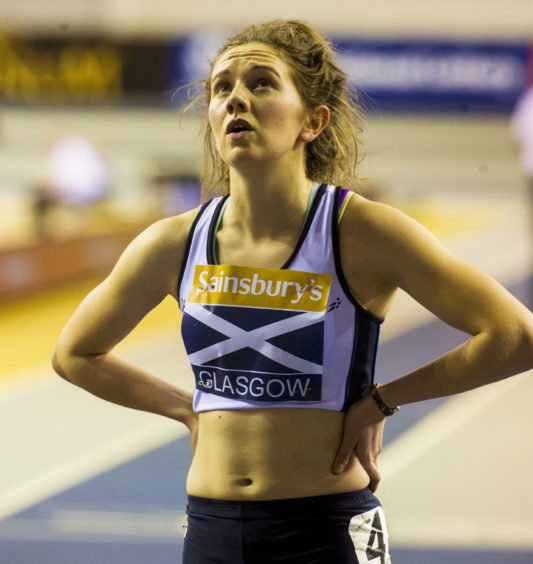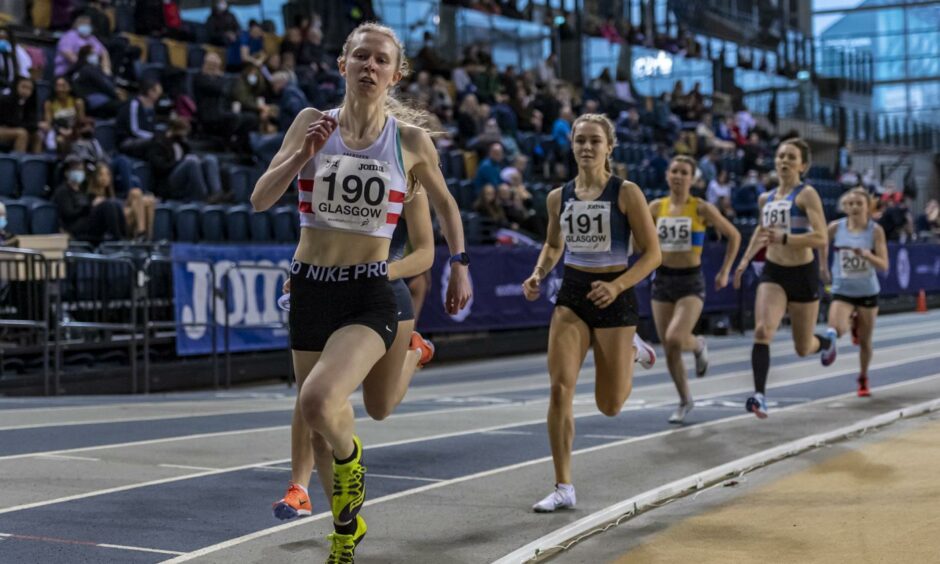As athletics careers go, Finzean sprinter Kathryn Christie must have had more setbacks than a dozen athletes put together.
Formerly a multiple Scottish champion over 60m, 100m and 200m, the 28-year-old Christie has had more MRI scans, rehab programmes, and physio sessions than she could care to count.
But beneath her cheerful and easy-going exterior, Christie has shown a degree of resilience few of her competitors can match.
In 2014, Christie came within 0.01sec of obtaining the standard for the Glasgow Commonwealth Games, running 23.71sec while representing Scotland at the Loughborough International.
Later that year, she ran 23.55sec to win the English Championships in Bedford – only to discover the following wind was fractionally over the legal limit of 2.0m/s.
And there have been a lot more frustrations in the nine years since.
Training consistently and avoiding the physio room has been a struggle.
Soon after the above close-calls, Christie needed an operation when stress fractures were identified in both feet.
The prolonged periods of rest which followed then saw Christie become more susceptible to other injuries.
Having been a Commonwealth Games hopeful, a few races each season soon became the best Christie could hope for.
However, now in her late 20s and being coached by former international sprinter Ryan Oswald – who himself came within a whisker of making the 2014 Commonwealth Games team – Christie is now preparing to compete at her first Scottish outdoor track and field championships in nine years this weekend.
‘I held on to the good sessions when it was all going downhill’
As the Banchory Stonehaven athlete says herself, it has been quite the journey – and she doesn’t feel her career has reached the finish line yet.
She said: “Deep down, I didn’t want the closure (of stopping athletics). I didn’t want to say ‘that’s me done’ because it’s something I love doing, and I always have done.
“I love the dedication and commitment involved with it, being involved in a training group and a coach… I just like doing it.
“If you love it that much, you can’t imagine not doing it – that’s kept me going.
“When the feet problems started, I still felt I had more to give, so I think that, throughout the last eight years, there’s always been a session where I thought ‘that felt really good’ and I knew I wasn’t done yet.
“There were always some good sessions which I held on to when it was all going downhill.”
There haven’t been many positives since 2014, but Christie’s great skill has been finding them.
A change in event has helped.
Intuitive training approach and switch to 400m paying dividends for Christie
Now specialising in the 400m, Christie has been able to train with slightly lower levels of intensity and impact, meaning her body has been able to cope with the training volume.
The sprinter also credits Oswald for her improvements in a season which has seen her run faster and faster each race.
Having run 57.71sec in Inverness in May, Christie has since taken that time down by more than two seconds, running 55.42sec in Glasgow last weekend.
“We’ve got a great thing going on where communication is great,” Christie said. “I’m very honest if I turn up to training and something is bothering me a bit or if something is a bit tight – I’ll say it at the beginning. We’ll adapt by doing every second run or just change the session.
“Last summer, I didn’t race because I had a back and hip issue, and since then we’ve dropped a track session.
“I’m doing only two running sessions a week and, instead of that third track session, I’m doing a stationary bike session, which I think has really helped me this year because it’s just giving my joints an extra break.
“Ryan has been really good – he’s a natural coach, very supportive, and not too serious. It’s always good fun at training.”
‘Being on the track is what matters for me’
That is what keeps Christie going now – not medals, selections, and international vests.
After years of injury, Christie admits her goals are more modest than they may have been a decade ago – but it is that change of mindset which has helped her persevere with a sport when, realistically, many other athletes would have walked away.
On her aims, she said: “Just to be happy healthy and racing is all it is about now.
“I don’t look at certain competitions or certain titles – it’s about getting round the track and being in one piece.
“It’s quite refreshing, actually – I’m enjoying it. I think there’s less pressure – being on the track again is an achievement, and that’s what really matters for me.”



Conversation